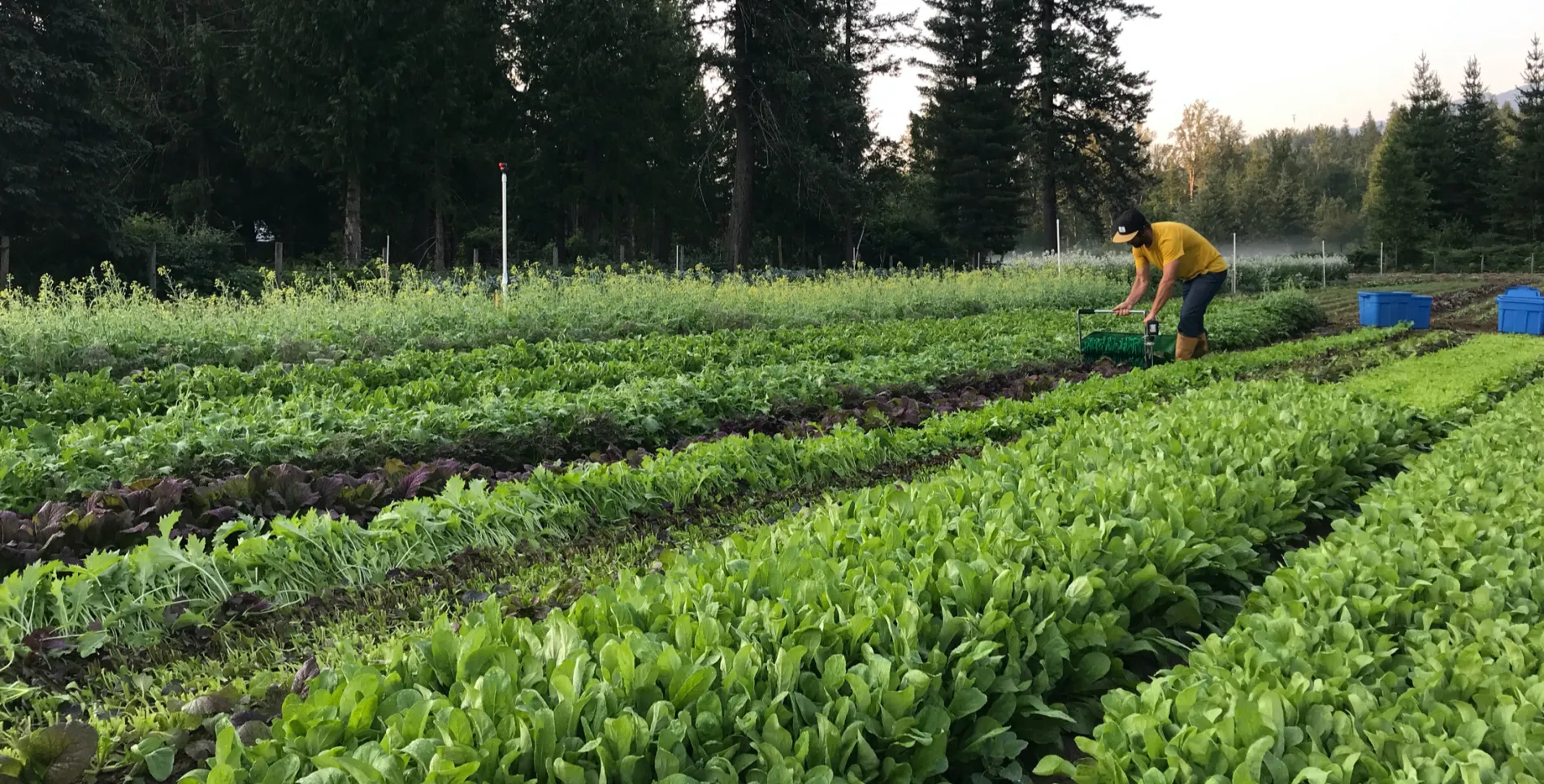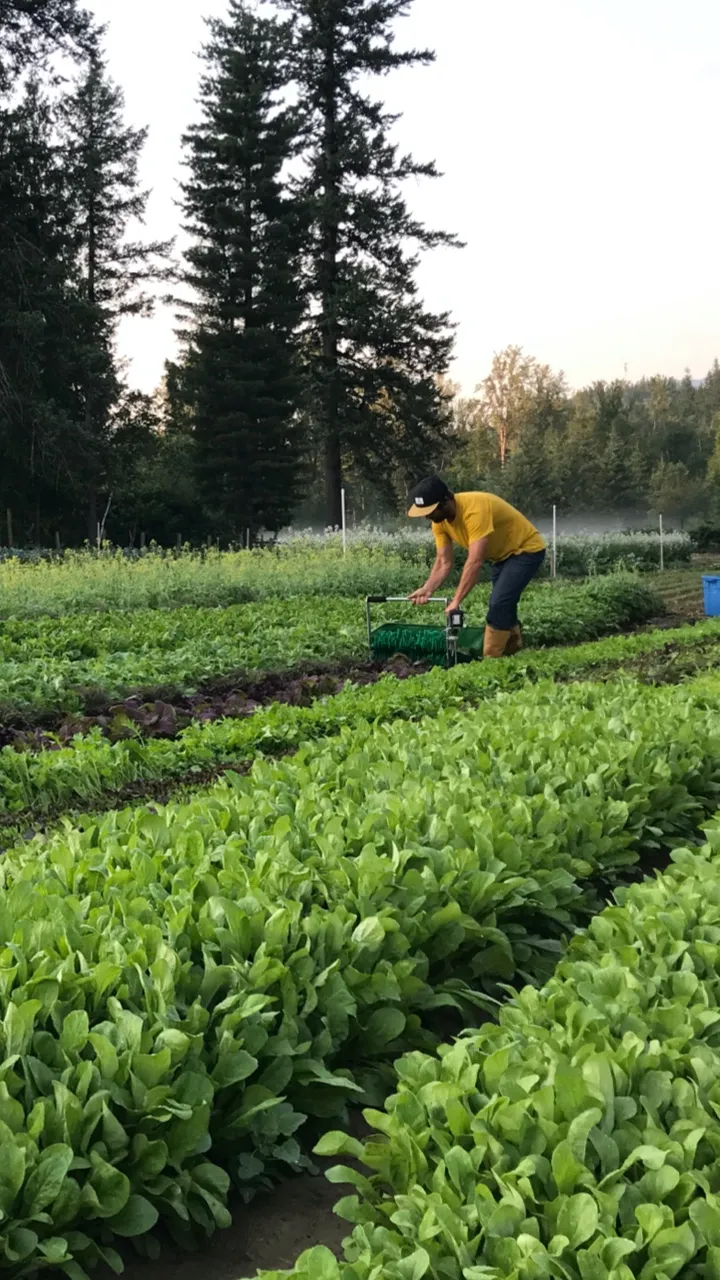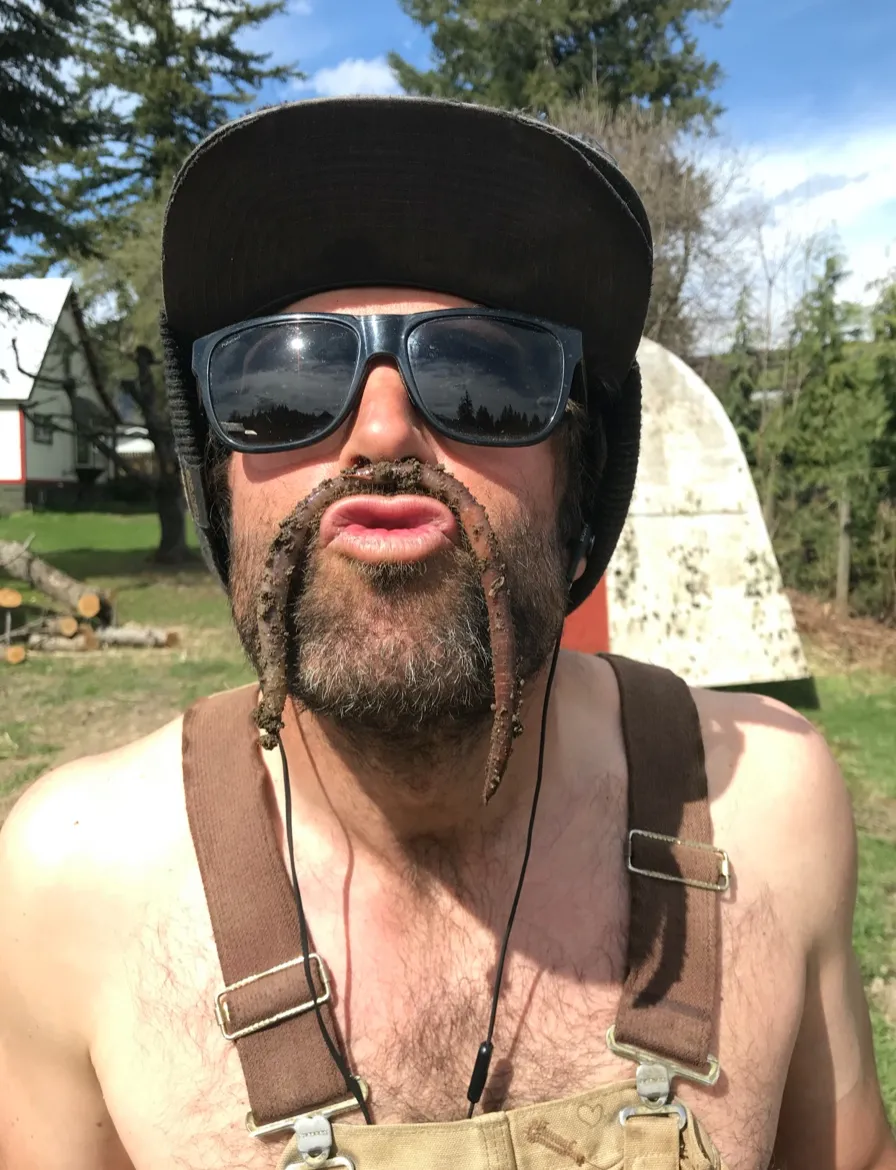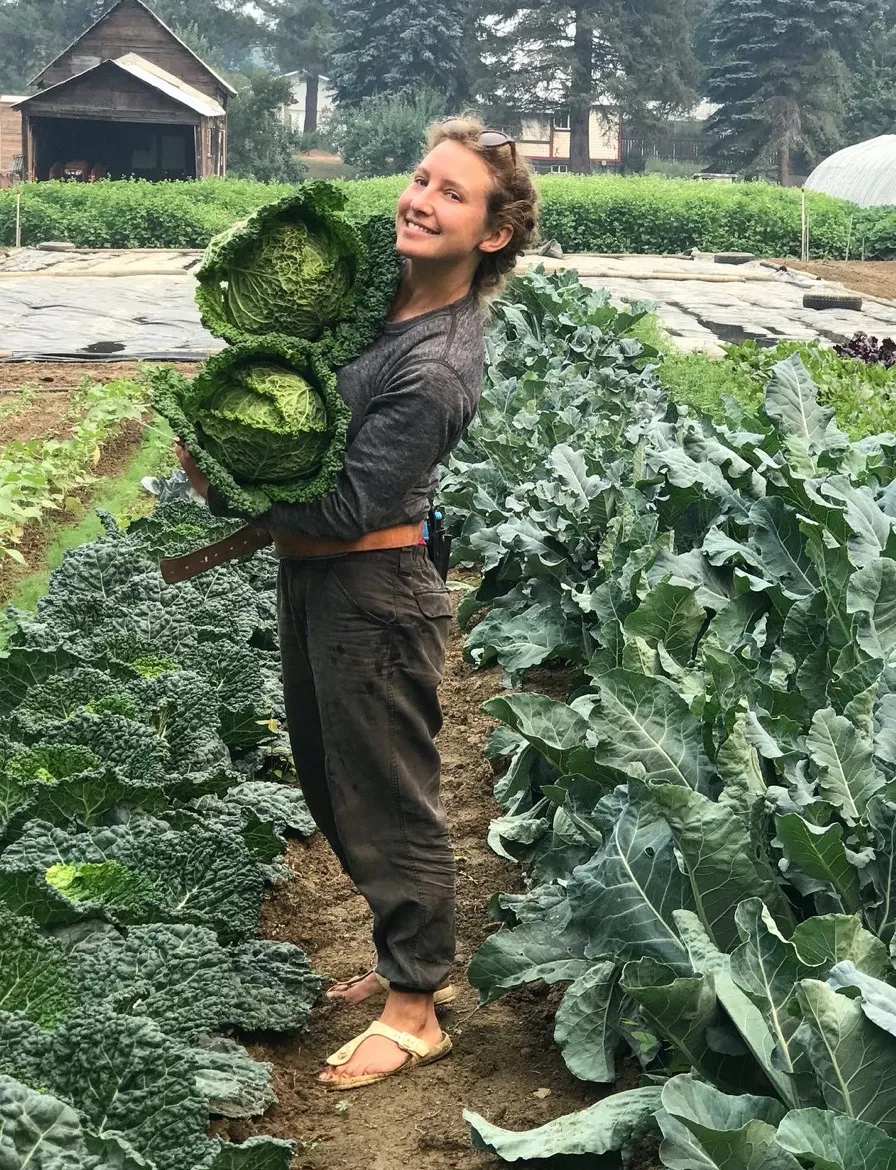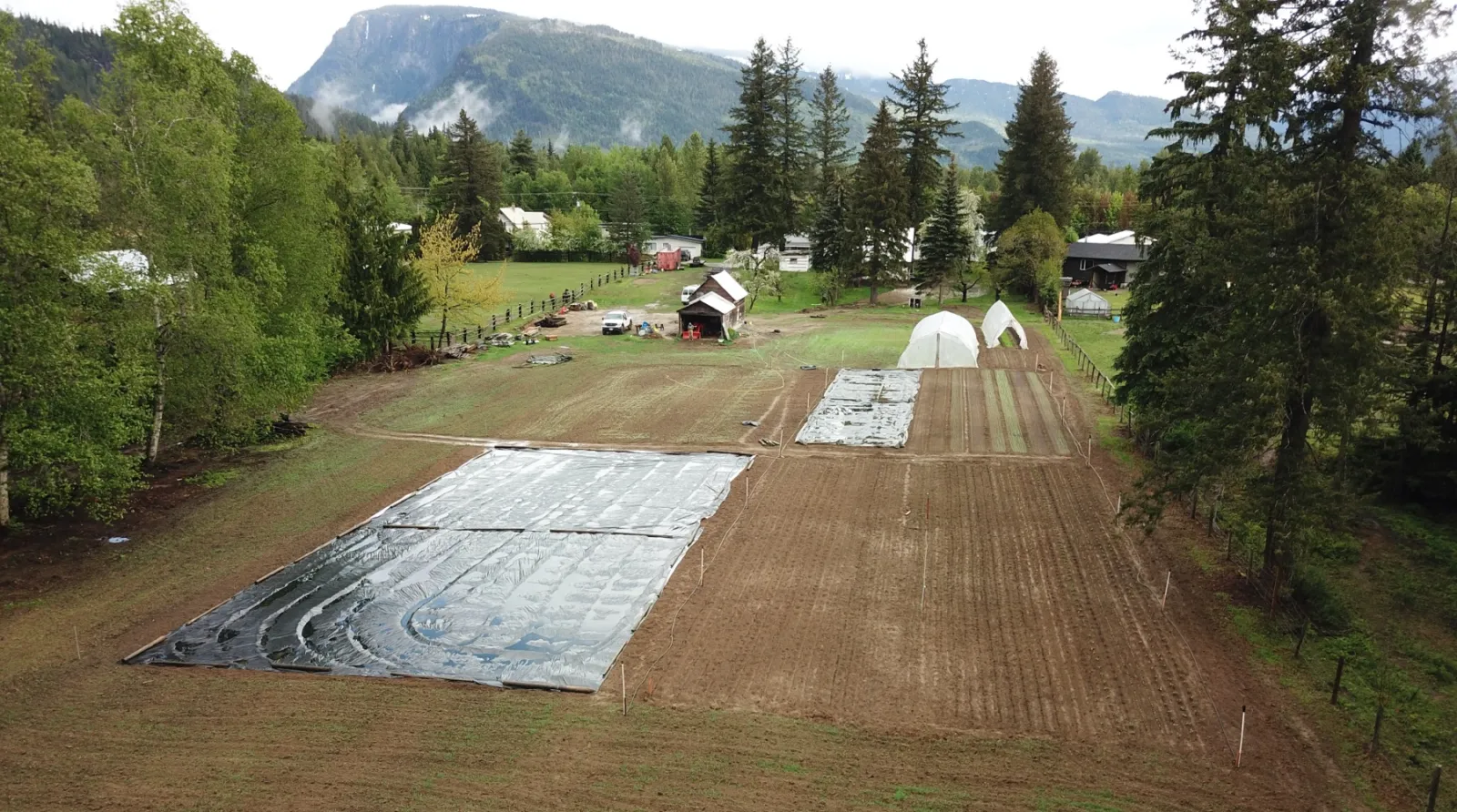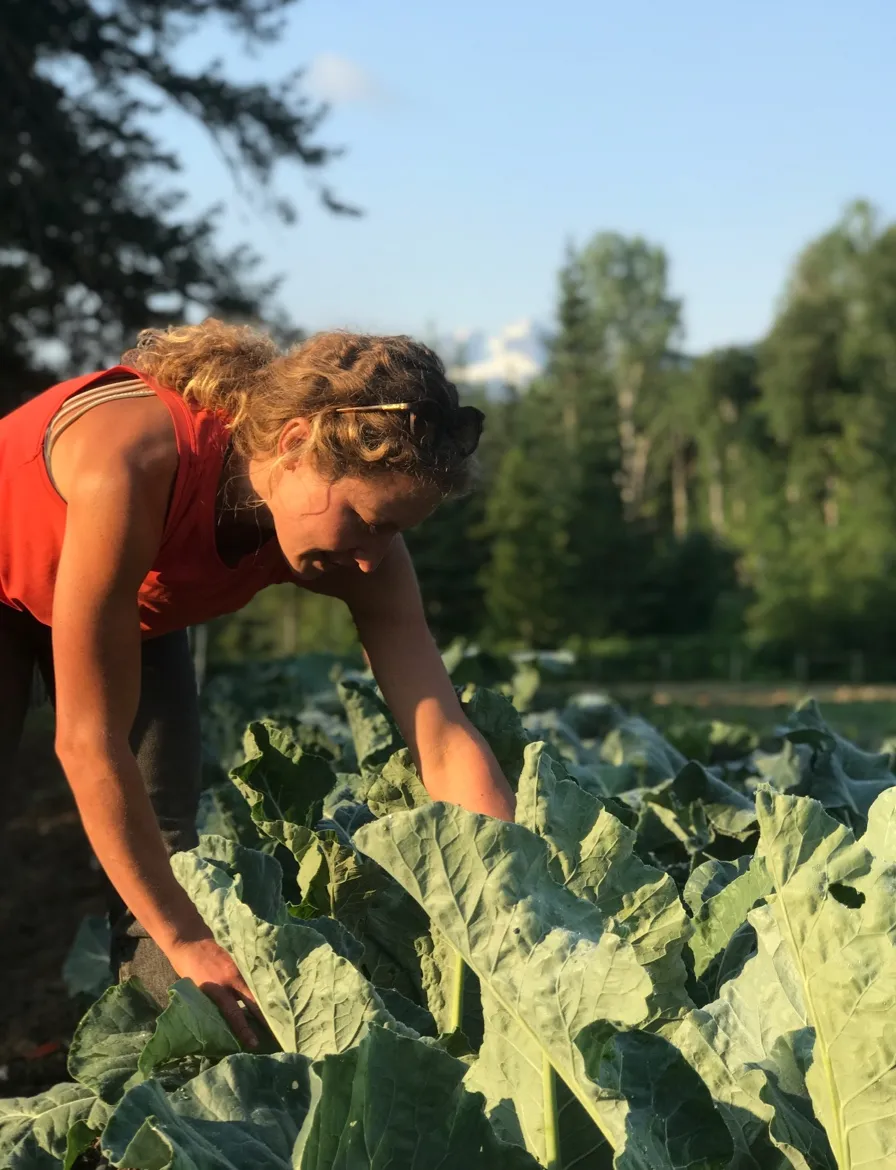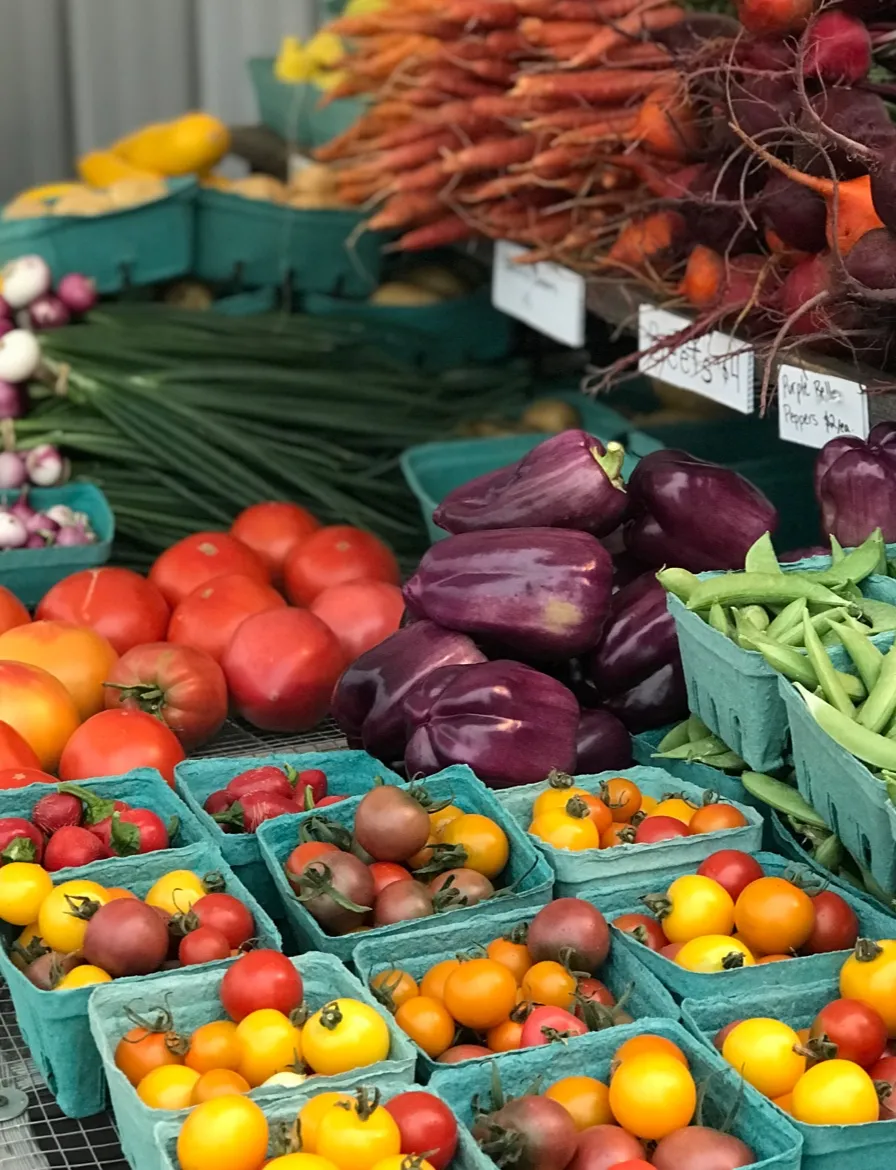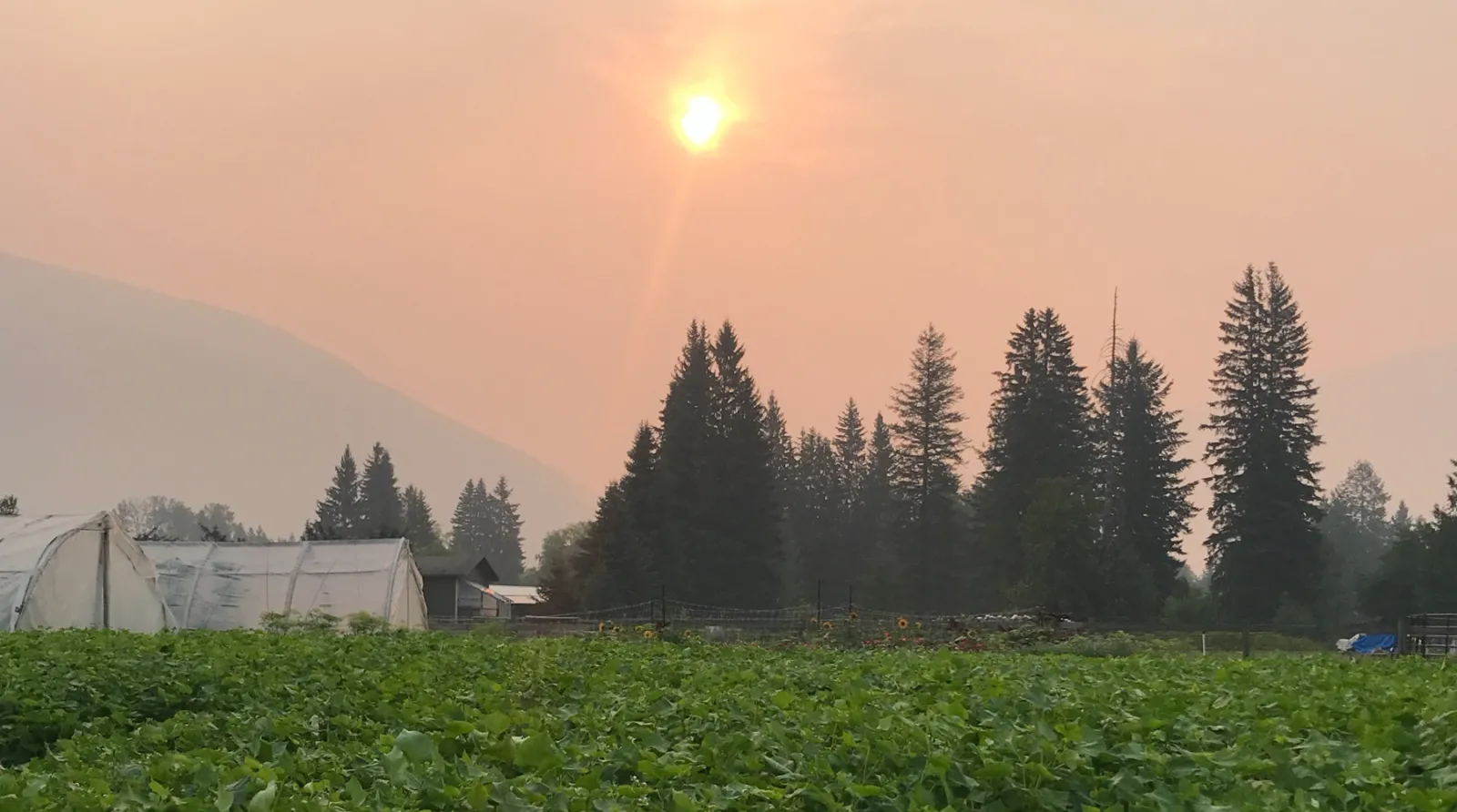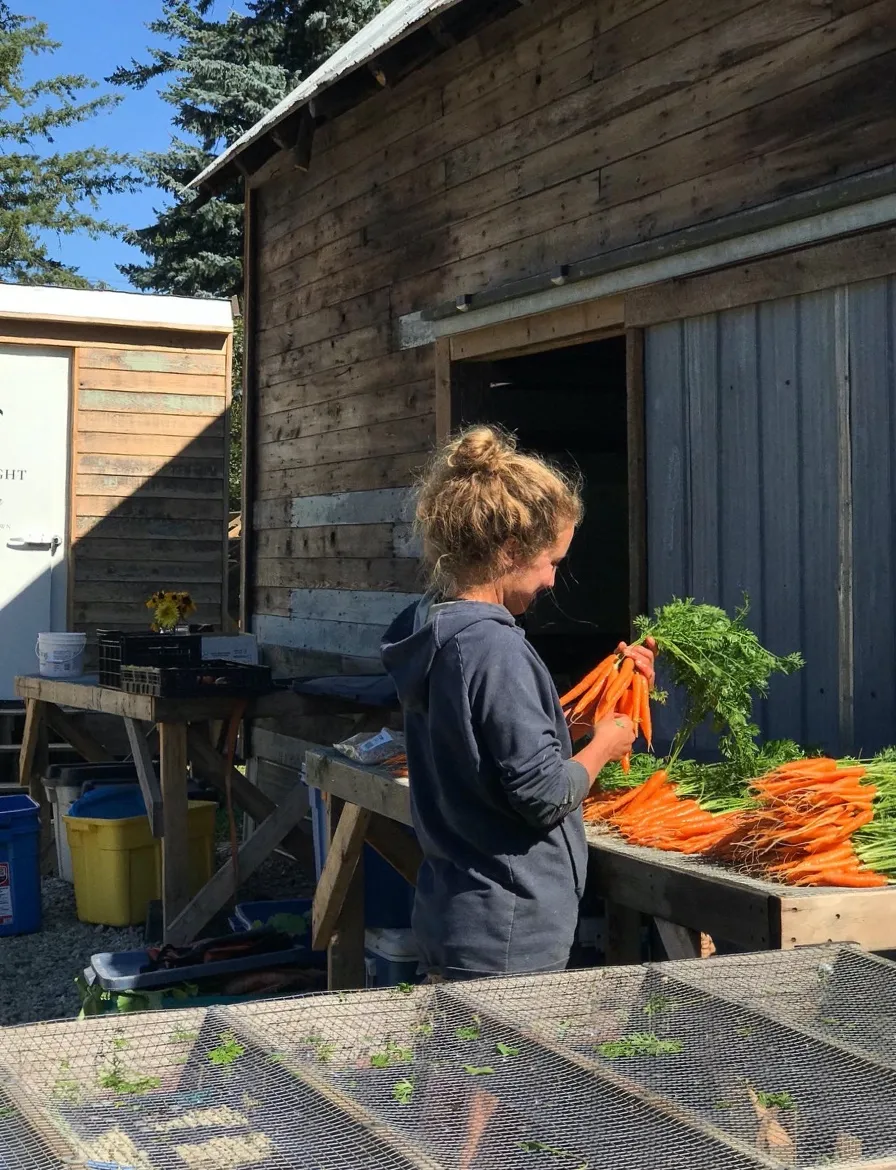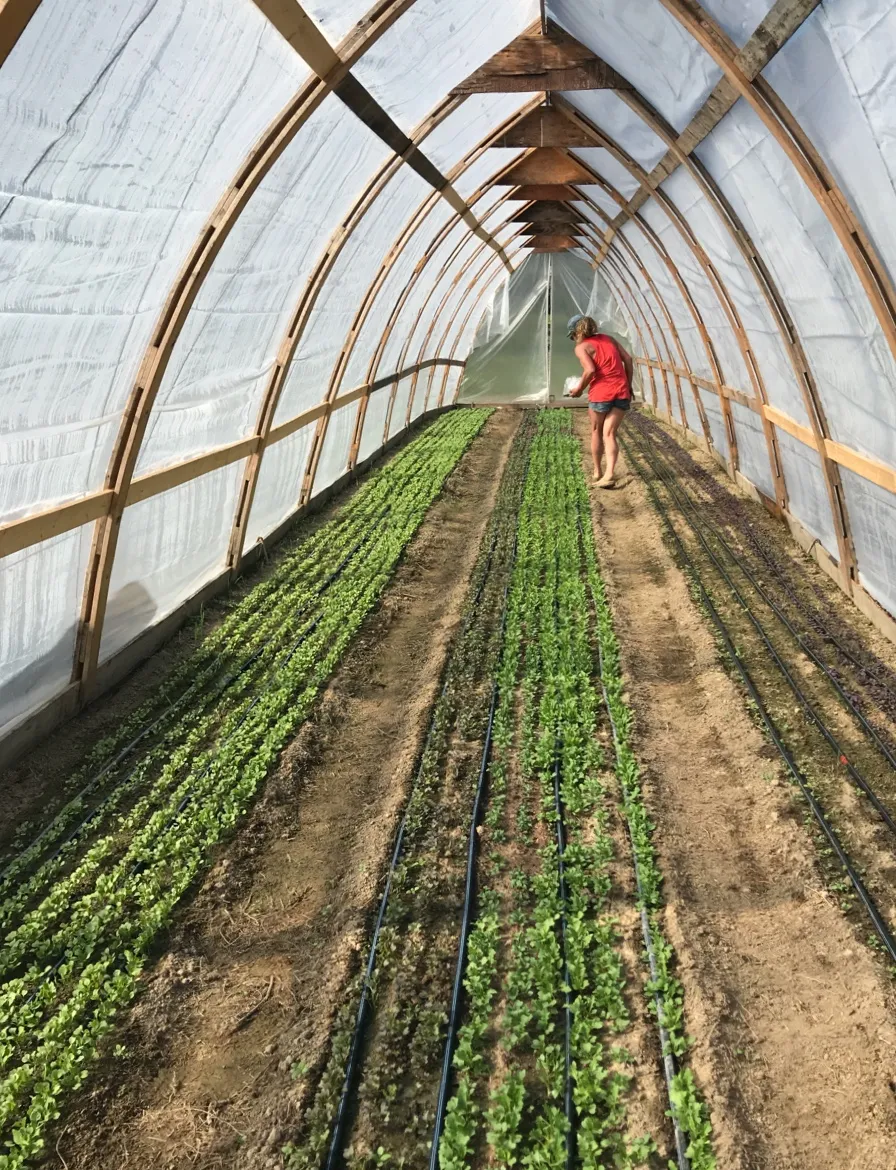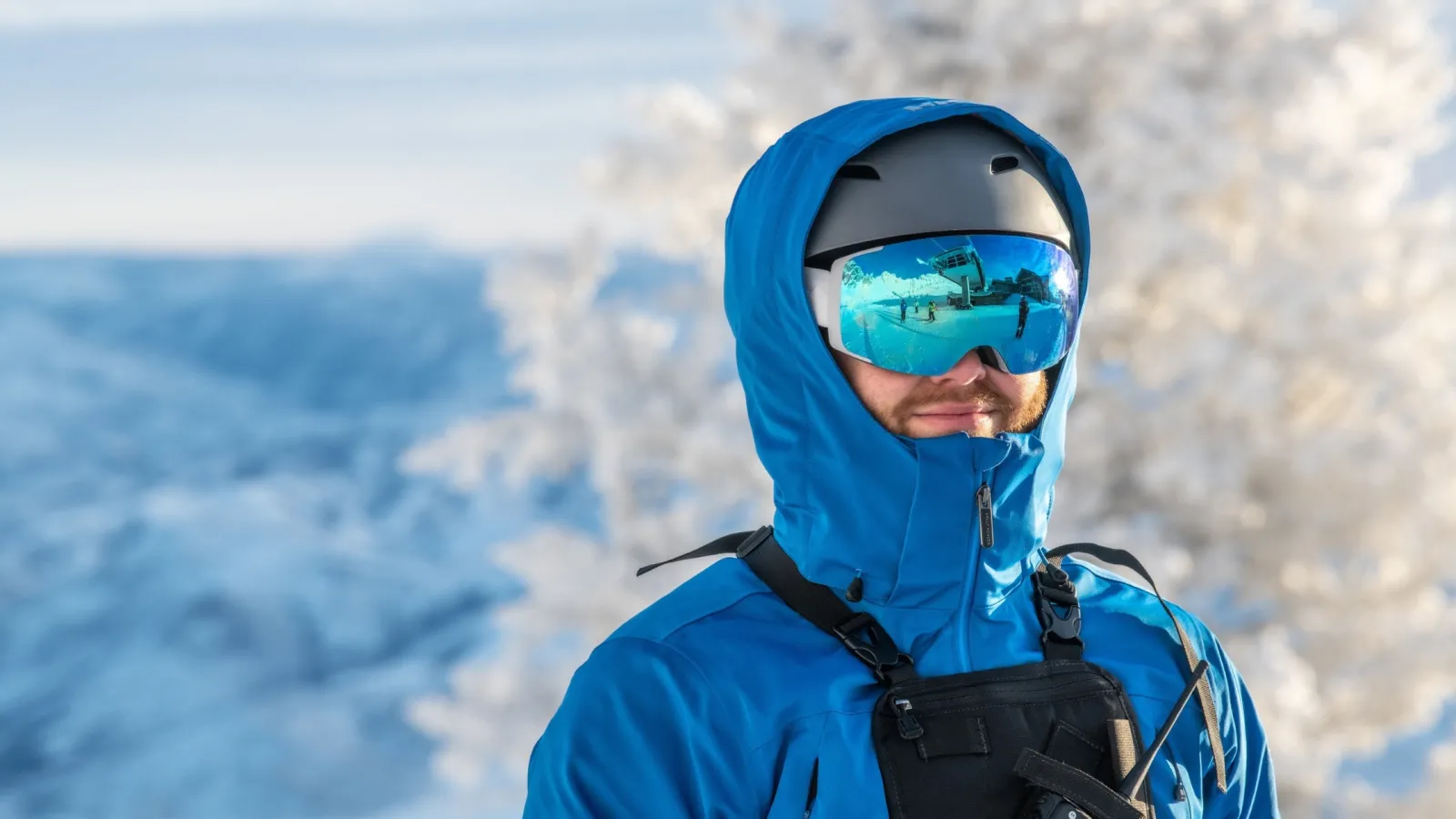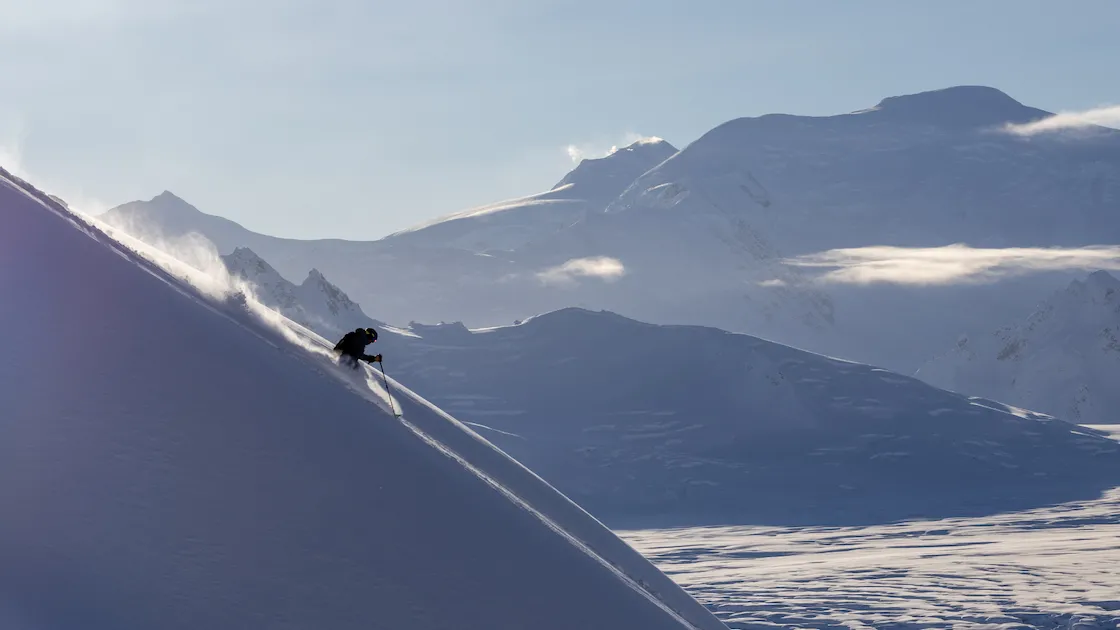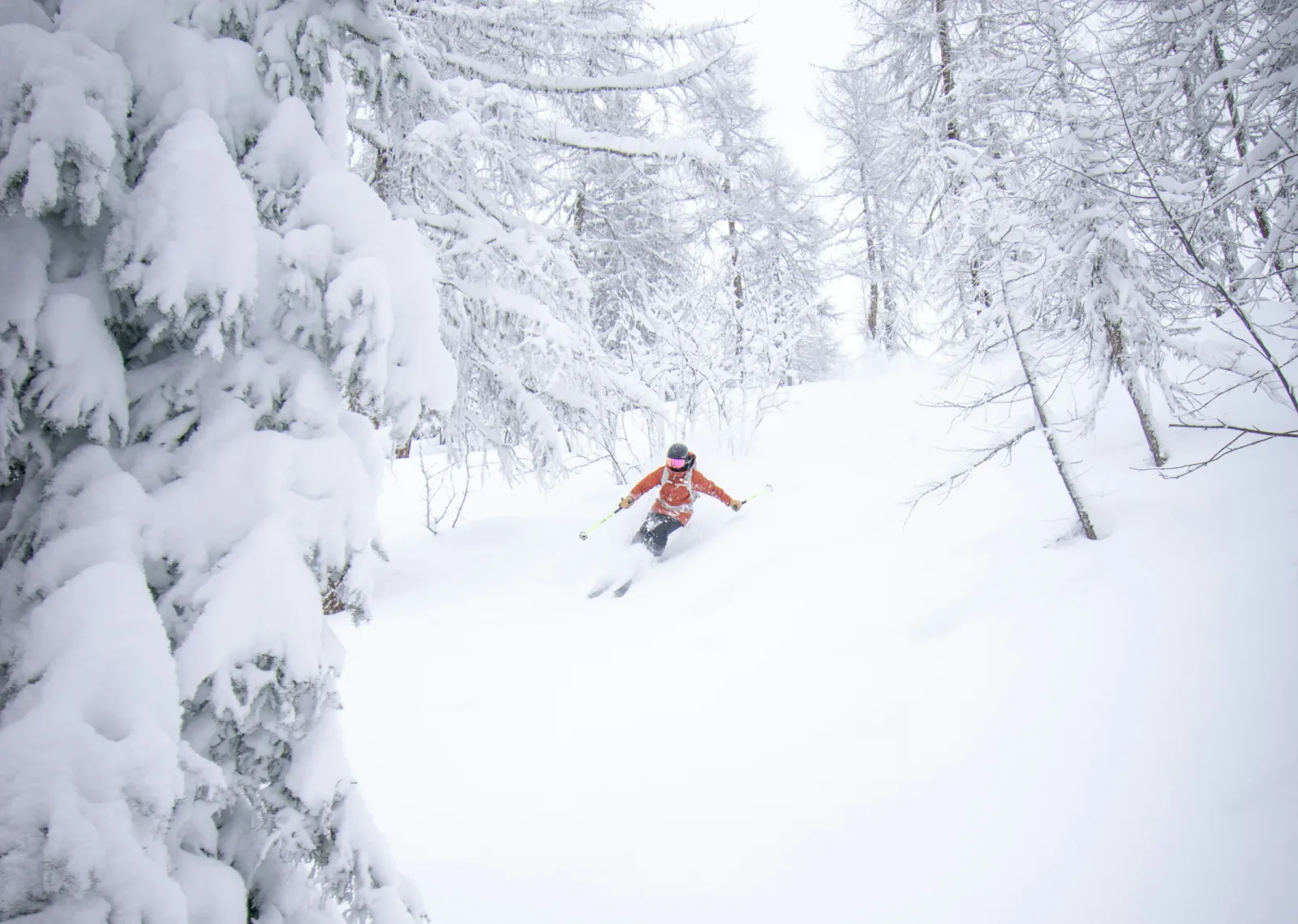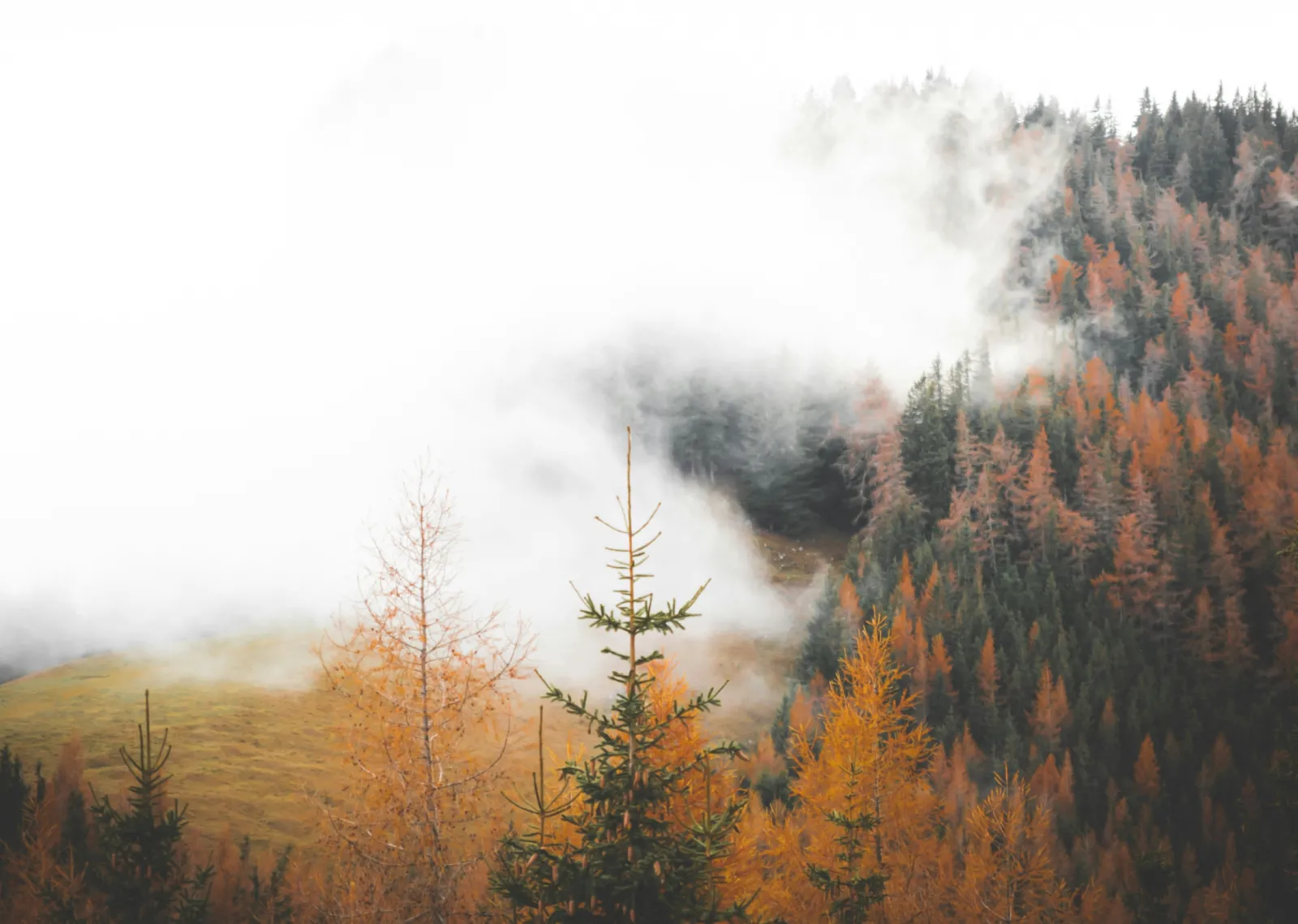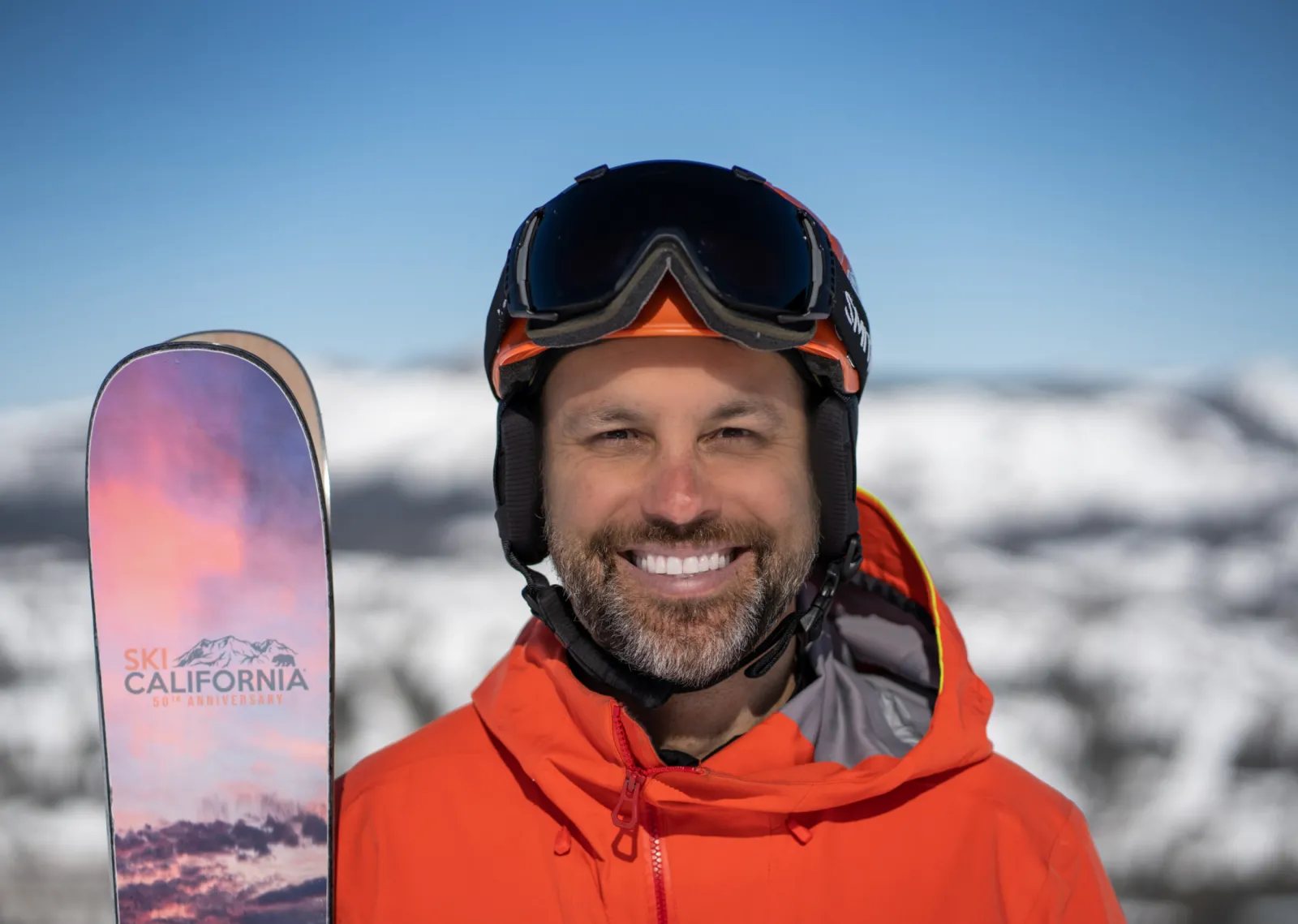Snow, soil, and sustainability: Interviewing freeskier Chris Rubens
Many of you have probably heard of Chris Rubens, the legendary Canadian freeskier. With roots laid down in Revelstoke, Rubens has made a serious name for himself in the ski industry. And while Rubens continues to set tracks on his skis, we reached out to him to hear about his newest venture, First Light Farm.
Along with his partner, Jesse Johnston-Hill, Rubens started First Light at the beginning of the COVID-19 pandemic, aiming to fortify Revelstoke's local food production. Now, farming takes up much of Rubens' and Johnston-Hills' time. So while the world often hears from him when there's snow beneath his skis, we wanted to chat with Rubens when there was soil beneath his fingernails, as summer came to a close.
Origin: Tell us how summer went for you.
Chris: In some ways, it was a pretty dark summer. The smoke from the forest fires blanketed the province and made things tough. But on the whole, our farm was so successful. We achieved a bunch of the goals we set for ourselves. Nothing likes extremes—farms included—so a record-breaking heat dome and forest fire smoke certainly made things challenging, but the support we received from our community helped us power through. And the beautiful weather we've had through September has made for such a great bookend to the season.
Origin: Revelstoke is a small town, somewhere not quite halfway between Calgary and Vancouver. To some degree, it's isolated. Can you tell us about the sense of community you mentioned?
Chris: Quite simply, we'd be nothing without our community here in Revelstoke. For this (First Light Farm) to work as a business, we need to sell our produce locally. And the people here have responded so well to what we're trying to do. We get to see their appreciation firsthand when we bring food to the Farmers' Market, and they're stoked to be supporting a local initiative. People are thoughtfully spending their money and looking for ways to support our local economy, and we're happy to be a part of that.
Origin: We've noticed community ties, particularly in mountain communities, become stronger in the last 20 months. Have you felt this happen in Revelstoke, too?
Chris: For us, I think one of the externalities of COVID-19 was that it revealed just how vulnerable we are. In particular, it highlighted the danger of food insecurity with the supply chain disruptions. This is a longstanding issue, given that the highways in and out of town often close due to avalanches.
So we've seen our community rally together as we figure out how to navigate this pandemic, and that's been inspiring. For some folks, it's motivated them to put ideas they've had for years into action and start businesses here in town. And it's incredible to see your buddies take the leap and make it happen.
But as it is with everything, it's a multidimensional issue. Housing, like in many other mountain communities, is challenging here. The pandemic has made that challenge more acute for those who haven't been able to purchase housing. This is something we're grappling with as a community, especially in the face of COVID-19
Origin: Let's talk about taking the leap. Did you and Jesse have any fears or doubts about starting First Light?
Chris: Honestly, I don't think I knew what I was getting myself into. We had been thinking about starting a farm for a while, but the onset of the pandemic gave us a perfect window to get it going. We'd initially planned to spend that summer surfing and sailing. Life is funny sometimes.
One of our big concerns was finding land to grow on. The reality is that land and real estate are expensive here, and we wanted to be in a position to own the land we were going to invest our time and efforts into. On top of that, we’re in the mountains, so plots of land suitable for agriculture are few and far between. Fortunately, our neighbour donated a ¼ acre piece of land that allowed us to get going last year, and this year we were able to buy 3 acres of land right in Revelstoke.
We had the fears and doubts that anyone might have had, but going through the process of securing grant funding made us put together a thorough and detailed business plan, which at least provided a roadmap for the future. It gave us some clarity on how our operation needed to work, which gave us the confidence to start.
I still deal with some of that doubt during the spring. It's an intimidating time. The calendar is laid out in front of you. And as you're planning and planting for the summer ahead, you just have no idea what's going to work, what isn't, and what Mother Nature might throw at you.
Origin: Like a heat dome and a brutal wildfire season, for example?
Chris: Exactly. But now that we've got two summers of growing under our belts, we've been able to take learnings from last season to make changes for how we did things this summer, and we'll look to do that again as we start up again in 2022. The weeks can begin to look the same during the season, so we're always looking to refine our processes.
Origin: I imagine, as it is the mountains, the learning never stops on the farm. What are some of the things you've learned in the last couple of years?
Chris: I'm addicted to learning, whether that's on my skis or in the field. Farming is a process, and it's constantly evolving. We're learning about our climate and how things grow on a daily basis. We've been figuring out what our soil responds to, as it's just as important to feed your soil as it is the plants you're growing. We opt for compost as an organic fertilizer, and it releases nutrients into the ground more slowly than synthetic options.
On a personal level, because farm work demands so much of our time, we don't get to spend as many days adventuring in the mountains through the summer. But even when things are busy on the farm, we make sure to take one day off to play outside. And what I've found is that that single day in the mountains, whether I'm running, biking, or hiking, gives me almost everything I need. I feel so profoundly appreciative for being out there, even just for one day a week. It's so crucial for my psyche and letting me be the best version of myself.
Everyone's relationship with the mountains is different, and I think it's always evolving. Some chapters are about finding (and pushing) your limits, and some chapters are just about enjoying the moments you get to spend out there.
Origin: Sustainability seems to be a major theme in your life. What does 'sustainability' mean to you?
Chris: I remember touring 'Guilt Trip,' a ski film about climate change I worked on a few years ago. That catalyzed some lifestyle changes for me. I wanted to start contributing to the solution. And First Light is an extension of that. Ultimately, an individual's carbon footprint is pretty insignificant in the grand scheme of things, but making personal changes and using my platform to share my voice is important, and I'm privileged to be able to do it. It's a big piece of the pie in my life.
During Canada's federal election this year, we were able to speak with some of our elected officials about climate change and our natural environment. It's a critical moment. If you look at the summer we had, not just here in British Columbia but globally, you'd be hard-pressed not to be thinking critically about the future. Fortunately, it seems like more and more people are considering how they spend their money, shopping locally, and making greener choices. We see that here in Revelstoke with our farm. I think it's a sign of good things to come. So, I see sustainability continuing to be a major theme in my life, through this chapter and all the chapters to come.
Follow along with Rubens, Johnston-Hill and First Light Farms on Facebook and Instagram.
